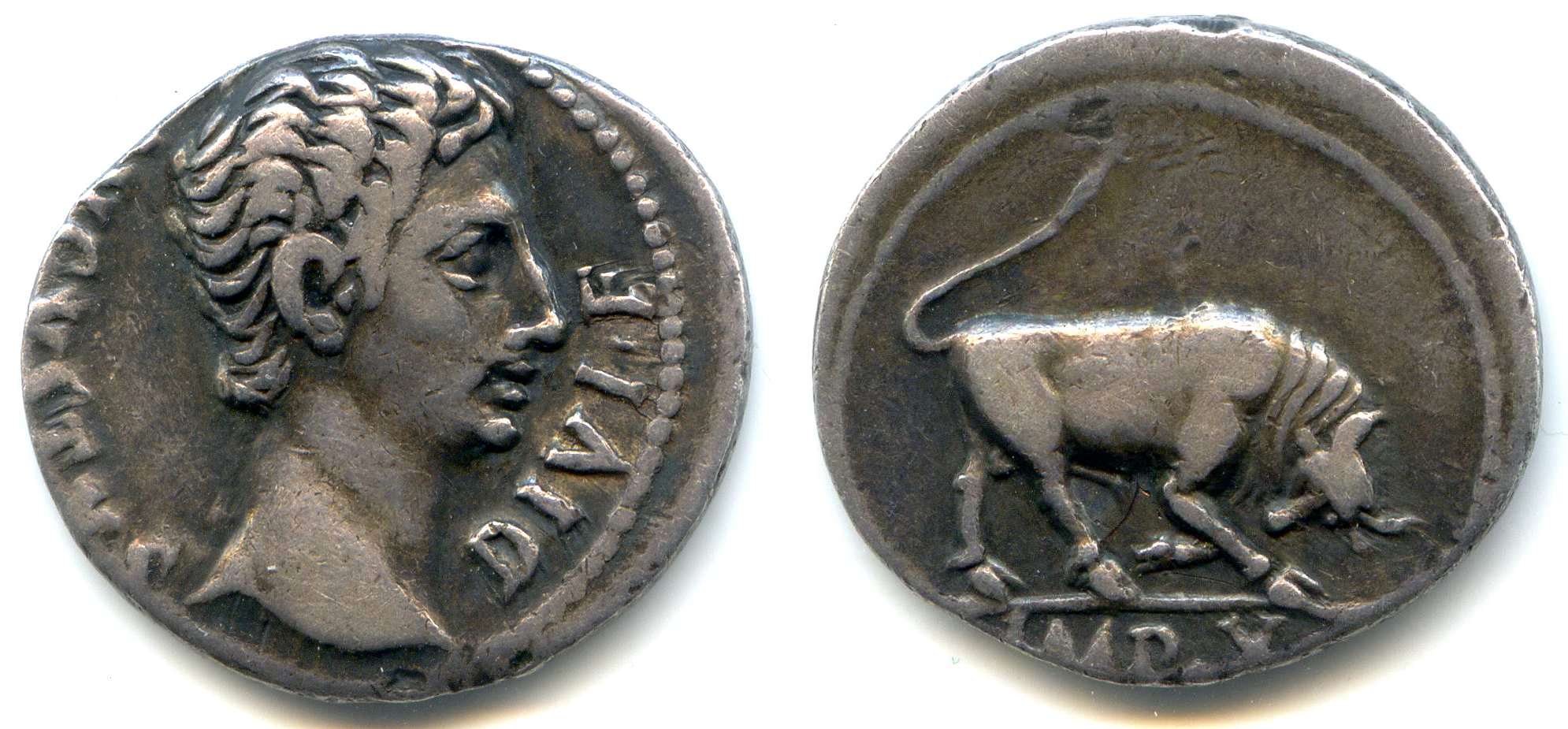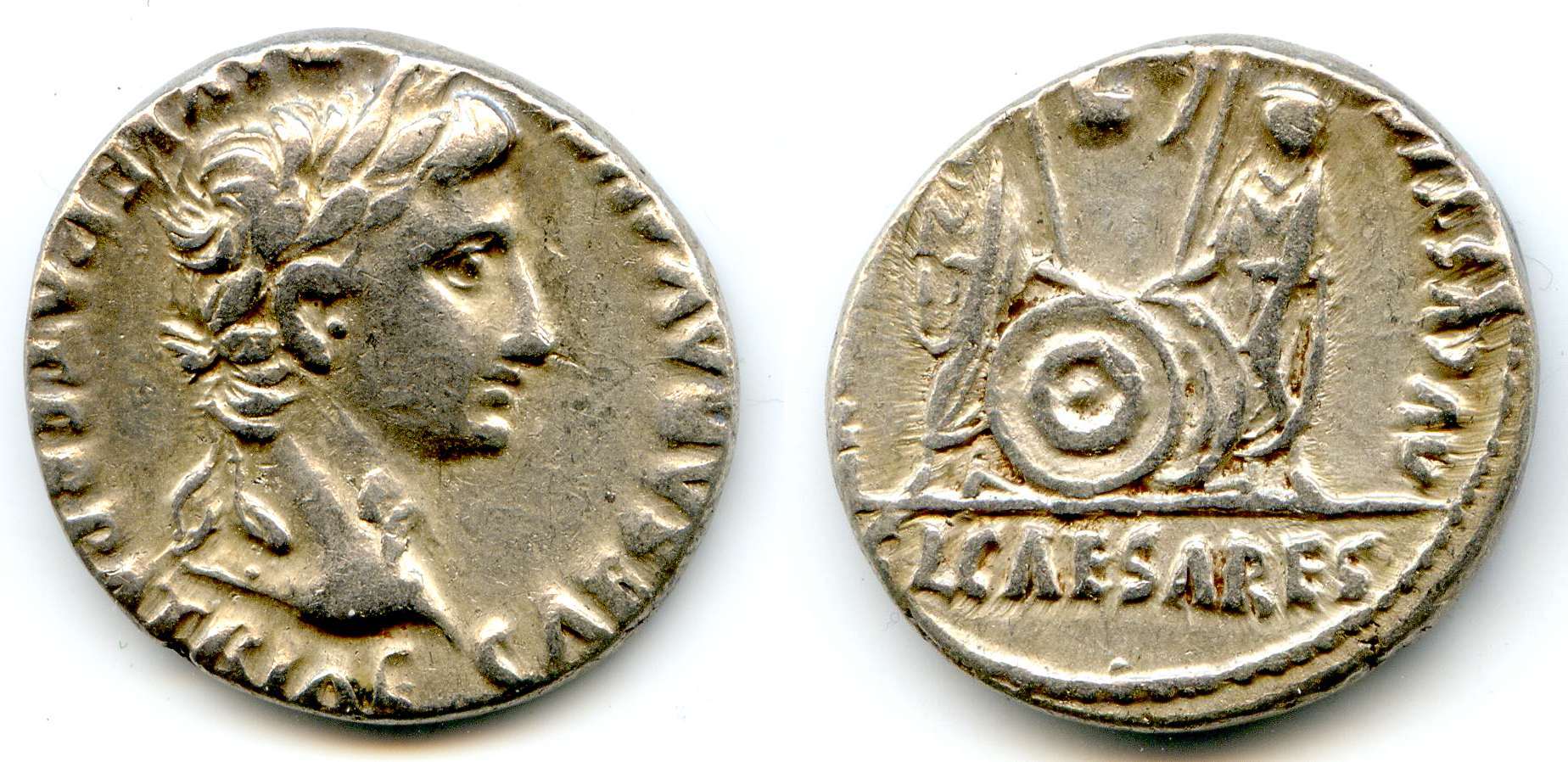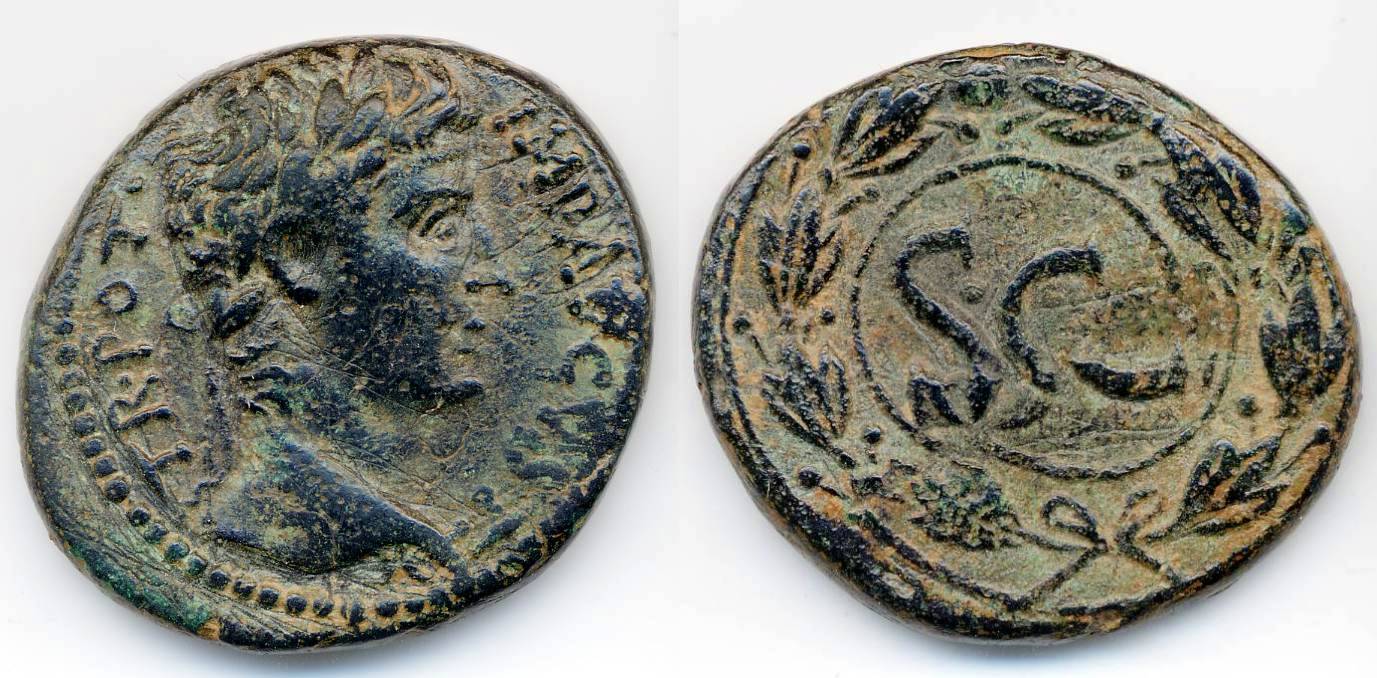Augustus (Octavian)
Roman Emperor, 27 BC - 14 AD

Silver Denarius, 19 mm, 3.8 grams
Obverse: Head of Augustus. AVGVSTVS DIVI F
Reverse: Bull butting, IMP X below.
Minted at Lugdunum (modern-day Lyons, France), 14 - 12 BC. The obverse legend
"AVGVSTVS DIVI F" means "Augustus, Son of a god". Augustus
was the adopted son of Julius Caesar. By this time, Caesar had been officially
diefied.

Silver Denarius, 18 mm, 3.8 grams
Obverse: Head of Augustus.
Reverse: Gaius and Lucius Caesars.
Minted at Lugdunum, 2 BC - 4 AD. The two standing figures on the reverse are
Gaius and Lucius Caesars, who were Augustus' grandchildren and at the time the
coin was designed, heirs to the throne. However, they both died young, in 4 AD
and 2 AD respectively.

Copper Provincial As, 26 x 28 mm, 16.9 grams
Obverse: Head of Augustus.
Reverse: "SC" for "Senatus Consulto" within wreath.
Minted in the Roman province of Syria, 6-14 AD.
The great-nephew of Julius Caesar, Gaius
Octavius (Octavian) became Caesar's adopted son. Following Caesar's
assassination, Octavian raised an army and extorted an unconstitutional
consulship from the senate (43 BC.) He concluded a deal with his
arch-rival, Mark Antony which divided power among them
(the deal also included Lepidus as the so-called Second Triumvirate). A
later redivision of power gave Octavian the entire western half of the Roman
world, and Antony the eastern half. While Antony was distracted by
warfare with Parthia and his liaison with Cleopatra,
Octavian undermined Antony in Rome. In the Battle of Actium, 31 BC,
Octavian defeated Antony and Cleopatra and became the sole ruler of the Roman
world.
"Augustus" was the title of honor conferred on him
in 27 BC by the Senate. He ruled until 14 AD. His long reign was a time
of peace and reconstruction at home, sound administration, and steady conquest
abroad.